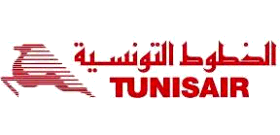 Tunisair Express Secures EU Operations with Dash 8-400 Wet Lease Amid Aircraft Suspension
Tunisair Express Secures EU Operations with Dash 8-400 Wet Lease Amid Aircraft Suspension
In a strategic move to safeguard its European network, Tunisair Express has entered a wet-lease agreement with Luxwing Ltd, deploying a Dash 8-400 turboprop to maintain vital connections between Tunisia and key destinations in southern Europe. This decision comes as the airline continues to face restrictions on operating its ATR 72-600 fleet within the European Union airspace—a challenge that could have threatened regional connectivity and business continuity for both leisure and corporate travelers.
The newly leased Dash 8-400 is now actively serving important routes linking Tunisia to Naples, Palermo, and Catania. These Italian destinations are critical not only for tourism but also for trade, family links, and broader economic exchanges between North Africa and Europe. By ensuring uninterrupted service, Tunisair Express demonstrates its resilience and adaptability in the face of regulatory and operational hurdles—a lesson that resonates for airlines and travel industry players across Sub-Saharan Africa.
The suspension of the ATR 72-600 aircraft by European authorities highlights the complex and evolving nature of international aviation compliance. For Tunisair Express, the temporary ban has necessitated rapid innovation and new partnerships. Wet-leasing—where an airline rents an aircraft complete with crew, maintenance, and insurance from another operator—enables immediate continuity of service, even as the carrier works through the process of regaining approval for its own fleet.
This development offers several insights for African airlines and travel professionals. First, the ability to act quickly and source alternative aircraft can mean the difference between sustaining routes and losing market share—especially on high-demand corridors between Africa and Europe. Wet-leasing arrangements, while sometimes more costly, can preserve critical frequencies, protect slot rights at congested European airports, and maintain brand visibility during periods of regulatory uncertainty.
For Tunisair Express, the partnership with Luxwing Ltd ensures that customers experience minimal disruption. The Dash 8-400, known for its reliability and efficiency on regional flights, is well-suited to the short-haul segments connecting Tunisia and southern Italy. Its introduction into the Tunisair Express fleet is a testament to the airline’s operational flexibility and its commitment to upholding service standards for both leisure and business travelers.
Beyond the immediate operational fix, this episode underscores the importance of ongoing investment in fleet modernization, regulatory compliance, and close engagement with aviation authorities. Airlines across Africa must not only maintain high technical standards but also anticipate and respond to shifting regulatory requirements in their key markets. The Tunisair Express experience is a timely reminder that building resilient operations—backed by strong relationships with lessors, regulators, and partners—can help weather unexpected challenges and protect network integrity.
The scenario also holds lessons for airports, tourism boards, and travel sector stakeholders in Sub-Saharan Africa. Reliable and uninterrupted air connectivity is essential for sustaining inbound tourism, business travel, and diaspora links. As more African carriers expand into European markets or plan new services, the need for robust contingency planning—be it through wet-leasing, codeshares, or interline agreements—becomes ever more pressing.
As Tunisair Express continues negotiations to reinstate its ATR 72-600 operations within the EU, the temporary deployment of the Dash 8-400 demonstrates the airline’s determination to serve its European destinations without pause. This model of proactive problem-solving and partnership can inspire African aviation leaders to build more adaptable, customer-focused networks—ensuring that operational challenges do not undermine the continent’s growing role in international travel and trade.
Ultimately, the swift wet-leasing solution by Tunisair Express not only preserves its routes but also sets an example of resilience and market responsiveness. For the African travel industry, it is a compelling reminder of the value of flexibility, foresight, and strong cross-border collaborations in an ever-changing aviation landscape.
